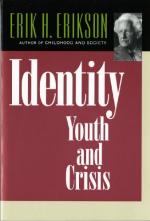
|
| Name: _________________________ | Period: ___________________ |
This quiz consists of 5 multiple choice and 5 short answer questions through Chapter 3, The Life Cycle, Epigenesis of Identity.
Multiple Choice Questions
1. What is one thing that Erikson states comes with each stage of identity development?
(a) Understanding of self.
(b) Closing off of society.
(c) A widening social radius.
(d) An emotional separation.
2. What may be gained as an individual enters Erikson's final stage of development when their overall development has been positive and healthy?
(a) Reflection.
(b) Hopelessness.
(c) Wisdom.
(d) Peace.
3. During the final stages of Erikson's stages of identity development, what type of feelings may individual experiencing stagnation feel?
(a) Hope for the future.
(b) Despair and hopelessness.
(c) Reflection.
(d) Calmness.
4. Concerning Erikson's theory, when identity development is negative, what type of personalities may occur during the second stage of development?
(a) Arrogance.
(b) Antisocial.
(c) Compulsive.
(d) Maladaptive behaviors.
5. According to Erikson, how long does it take for identity to develop?
(a) A lifetime.
(b) 5 years.
(c) Identity if formed at birth.
(d) 30 years.
Short Answer Questions
1. During the fourth stage of Erikson's theory of development, what occurs when an individual is successful?
2. What is the definition of "identity" subject to?
3. What does Erikson believe is an intrinsic part of maturation?
4. Because of an individual's tendency to define self based on history, what does Erikson think this self-based history leave little room for the individual to create?
5. What does Erikson suggest wholeness of the individual is associated with?
|
This section contains 245 words (approx. 1 page at 300 words per page) |

|




